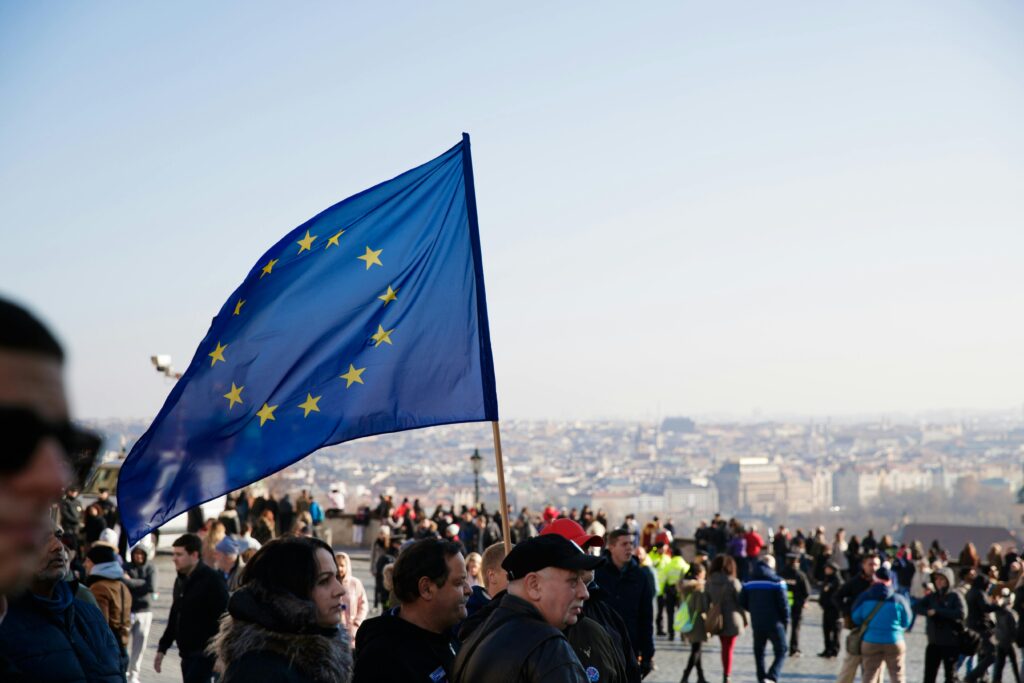- Politics
- Iran-Israel Conflict
- By Manohar Patil
The European Union and the Evolving Middle East Conflict: Navigating the Iran-Israel Dynamic
The ongoing tensions between Iran and Israel, particularly amplified by the broader Israel-Hamas war, present a significant challenge to the European Union’s foreign policy and its aspirations for regional stability. The EU, a complex bloc of 27 member states with diverse historical ties and geopolitical interests, finds itself walking a tightrope between condemning aggression, advocating for international law, and preserving crucial diplomatic channels. Its response reflects a delicate balance, often marked by internal divisions, as it seeks to mitigate escalation and promote a long-term resolution in the volatile Middle East.
A Balancing Act: Condemnation and Engagement
The EU’s immediate response to the recent surge in hostilities has been a mix of strong condemnation of attacks, particularly those targeting civilians, and calls for de-escalation. While unequivocally condemning Hamas’s actions, the EU has also increasingly voiced concerns over Israel’s military operations, particularly regarding the humanitarian crisis in Gaza and alleged breaches of international human rights obligations. This stance is reflected in ongoing reviews of the EU-Israel Association Agreement, which links trade relations to respect for human rights.
Simultaneously, the EU remains deeply concerned about Iran’s nuclear program and its broader regional influence. While committed to preventing Iran from acquiring nuclear weapons, the EU has also sought to maintain dialogue with Tehran, recognizing its critical role in any potential de-escalation. This dual approach of pressure and diplomacy underscores the EU’s strategic objective: to prevent a wider regional conflagration that would have severe repercussions for European security and energy interests.
Internal Divisions and Policy Cohesion
One of the most defining characteristics of the EU’s approach to the Iran-Israel conflict is its internal fragmentation. Member states hold varying perspectives, ranging from staunch support for Israel, often rooted in historical guilt and security concerns, to more critical stances emphasizing Palestinian rights and the need for adherence to international law. Countries like Germany and the Czech Republic have traditionally been strong allies of Israel, while others, such as Ireland and Spain, have advocated for more robust measures to protect Palestinian civilians and promote a two-state solution.
These divergent views often hinder the EU’s ability to forge a truly unified and assertive foreign policy. While common positions are eventually reached on many issues, the compromises required can lead to a less impactful or delayed response. The recent debates over reviewing the EU-Israel trade pact illustrate this challenge, with some members pushing for stronger action and others prioritizing continued engagement.
The Quest for a Lasting Solution
Despite the complexities and internal disagreements, the European Union remains committed to a two-state solution as the only viable path to lasting peace in the Israeli-Palestinian conflict. This commitment is a cornerstone of its Middle East policy, advocating for a sovereign Palestinian state living securely alongside Israel. The EU actively supports humanitarian aid efforts in Gaza and the wider Palestinian territories, recognizing the urgent need to alleviate suffering and rebuild infrastructure.
Furthermore, the EU seeks to leverage its economic and diplomatic weight to encourage all parties to return to meaningful negotiations. While acknowledging the limitations of its influence compared to global powers like the United States, the EU endeavors to be a credible mediator and a proponent of multilateral solutions. Its ongoing engagement with regional partners, including Gulf states, aims to foster dialogue and stability, ultimately contributing to a de-escalation of tensions between Iran and Israel and a more peaceful future for the Middle East.
Share this Article
WhatsApp
LinkedIn
Telegram
Email
Get Daily Updates to Your Inbox
Subscribe to News Letter
Advertisement


